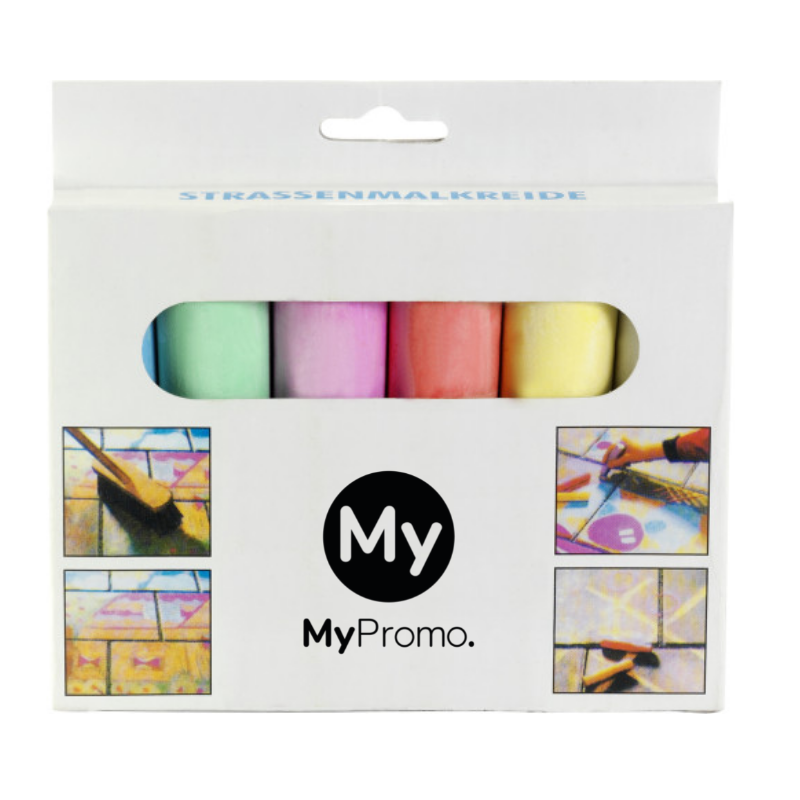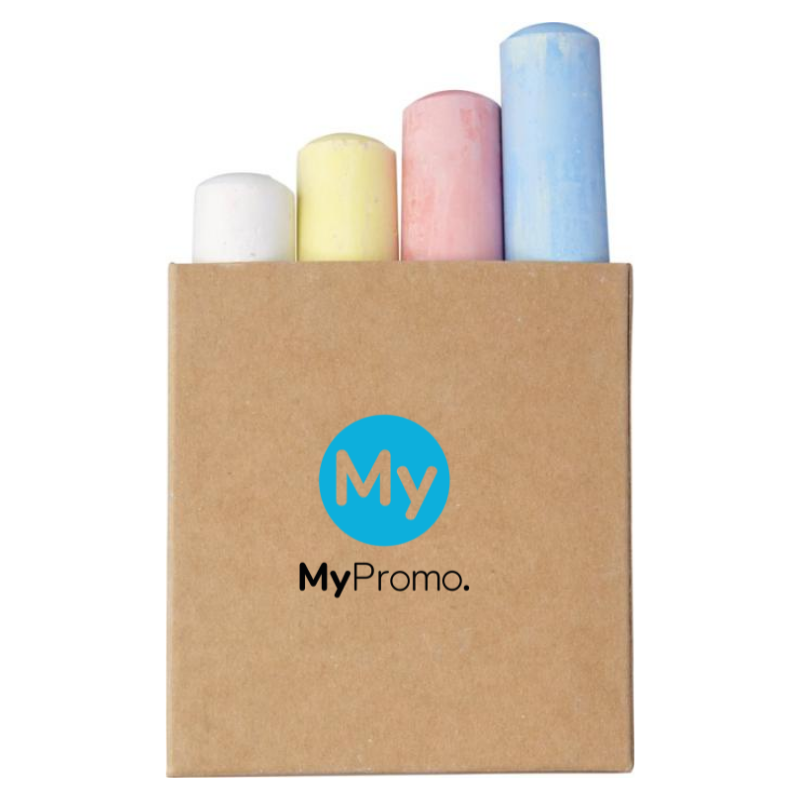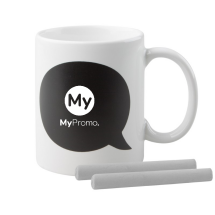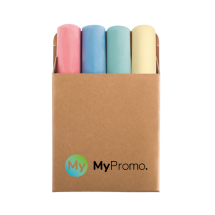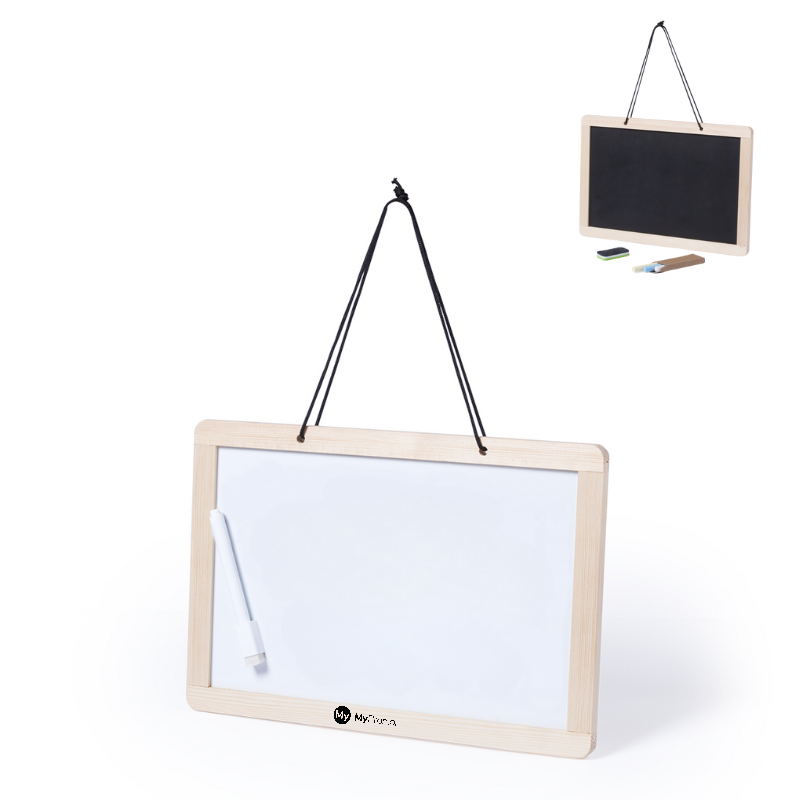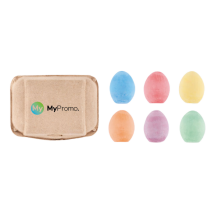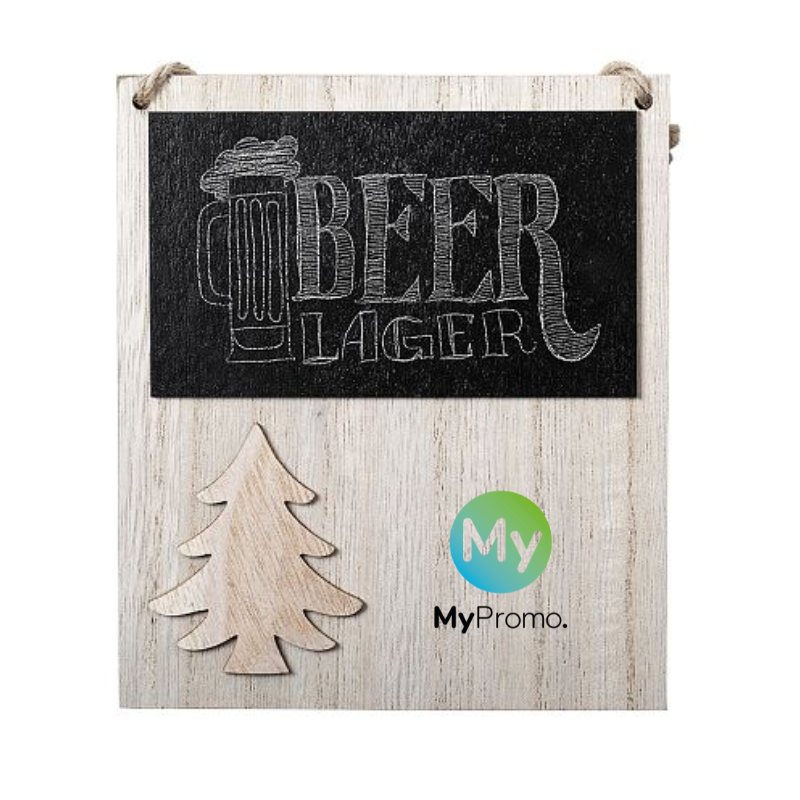Chalk
What is Chalk?
Chalk is a soft, white, porous sedimentary carbonate rock, primarily composed of calcite (calcium carbonate). It has been used historically for writing on blackboards in educational settings, but its applications have expanded significantly in both manufacturing and promotional products. The history of chalk dates back to prehistoric times when it was used for creating early art on cave walls. In the realm of manufacturing, chalk has evolved into a versatile material utilised in various forms ranging from raw chunks to finely milled powders.The sourcing and production process of chalk is relatively straightforward. It begins with the extraction of chalk from quarries, typically found in areas where ancient seas once existed. This natural resource is then crushed and purified to remove any impurities. Following this, depending on the intended use, chalk may undergo further processes such as grinding into powder, baking in kilns to produce quicklime, or shaped into sticks for writing instruments.
Characteristics and Properties of Chalk
Chalk is known for its remarkable properties which make it highly valuable in various industries. It is notably soft, making it easy to cut and shape. Its high porosity allows it to absorb pigments well, which is ideal for colour applications. Additionally, chalk has excellent coverage properties, providing a smooth, opaque finish when applied as a coating or pigment.
Common Applications and Notable Uses of Chalk
Chalk's utility in manufacturing spans several industries, from construction, where it is used in the making of cement and plaster, to agriculture, where it adjusts soil pH levels. In the promotional gifts sector, chalk is particularly prized for its adaptability and eco-friendliness. Promotional items such as customisable chalkboards, chalk-based paints for craft kits, and even temporary outdoor branding options like chalk-based street advertising are popular. The advantage of using chalk in manufacturing lies in its natural abundance, ease of processing, and non-toxic nature, making it an excellent choice for environmentally conscious products.
Chalk Versus Other Materials
When compared to other materials like plastic or metal, chalk offers a unique set of features. It is inherently more sustainable, which aligns well with increasing environmental concerns. However, it is important to consider that while chalk is excellent for temporary or semi-permanent applications, its softness and solubility in water may pose limitations in products requiring long-term durability and water resistance.
Challenges and Limitations of Using Chalk
Despite its benefits, working with chalk does come with challenges. Its softness, while advantageous for shaping and blending, also makes it prone to wear and damage in harsh conditions. Furthermore, being soluble in water, products made from chalk are not suitable for outdoor use where exposure to rain is a factor.
In conclusion, chalk remains a dynamic and valuable material in both traditional and innovative manufacturing realms. Its application in the promotional gifts industry continues to grow as businesses seek sustainable, versatile, and cost-effective materials for their branding needs. While it may not replace more durable materials in all contexts, chalk’s unique properties offer compelling advantages where applicable.
| Property | Description | Common Applications |
|---|---|---|
| Softness | Chalk is easy to cut and shape due to its softness. | Used in educational tools and crafting materials. |
| High Porosity | Capable of absorbing pigments, which makes it suitable for colour applications. | Chalk-based paints and coatings in arts and crafts. |
| Coverage | Provides a smooth, opaque finish, ideal for coatings and pigments. | Used in the construction industry for plaster and cement. |
| Solubility in Water | Dissolves easily in water, which limits its use in moisture-prone environments. | Not recommended for outdoor applications exposed to rain. |
| Environmental Friendliness | Derived from natural sources and non-toxic, making it an eco-friendly choice. | Promotional gifts, sustainable packaging materials. |
What is chalk made of?
Chalk is primarily made of calcite, which is a crystalline form of calcium carbonate. It forms from the accumulation of the calcareous shells of microorganisms and is typically found in sedimentary environments.
Where is chalk found?
Chalk deposits are commonly found in areas that were once ancient seabeds. Major chalk deposits can be found in parts of Europe, particularly in the White Cliffs of Dover in England, as well as regions in France and Denmark.
What are the main uses of chalk in manufacturing?
In manufacturing, chalk is used for making lime and cement, and it’s also a key component in the production of glass and ceramics. It serves as a filler in plastics and paints and is used in agriculture to adjust soil pH levels.
Is chalk environmentally friendly?
Chalk is considered environmentally friendly due to its natural abundance and biodegradability. It is non-toxic and does not produce harmful by-products during its extraction and processing.
Can chalk be recycled?
While chalk itself is not typically recycled due to its low cost and high natural abundance, chalk-based products such as gypsum can be recycled. Chalk waste from industrial processes can also be repurposed as fillers in other products.
